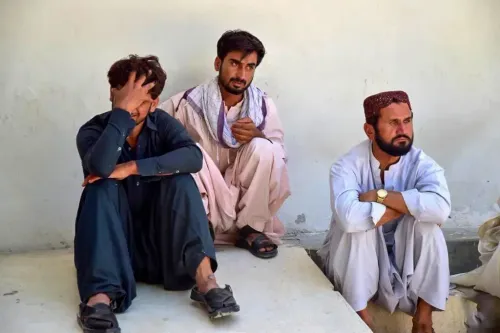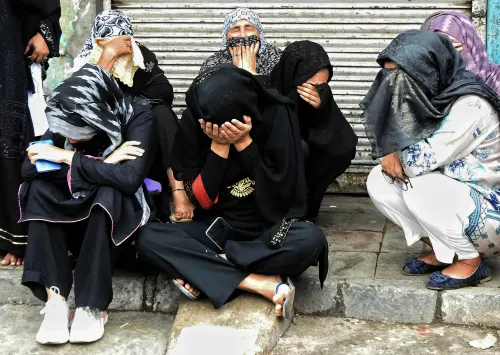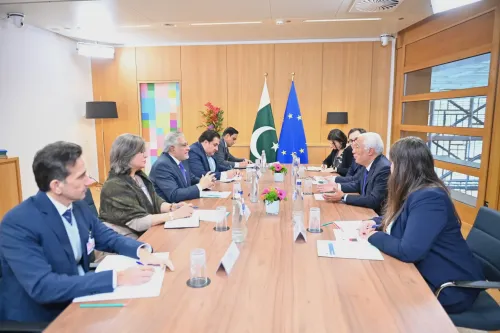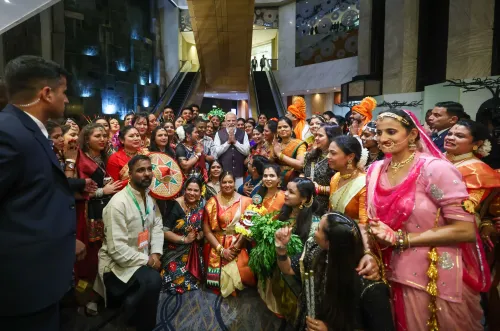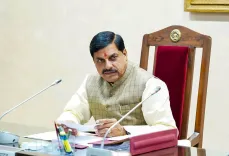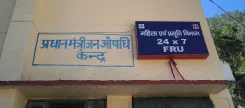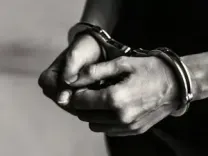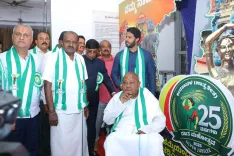Did Ex-President Yoon of South Korea Evade Further Questioning by Special Counsel?
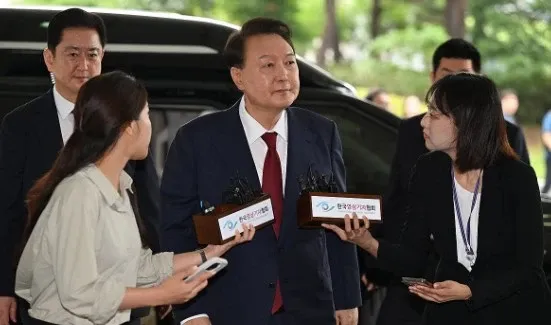
Synopsis
Key Takeaways
- Former President Yoon Suk Yeol faces significant legal challenges.
- Yoon claims illegitimacy of police involvement in questioning.
- His refusal to continue raises questions about the investigation's integrity.
- Political and legal tensions are evident in South Korea's current climate.
- This situation highlights the complexities of accountability for former leaders.
Seoul, June 28 (NationPress) Former South Korean President Yoon Suk Yeol arrived for questioning on Saturday regarding insurrection allegations related to his December 3 declaration of martial law. However, he declined to continue the questioning, citing the illegitimacy of a police officer from the special counsel team overseeing the inquiry.
Yoon's legal representatives contended that the police investigator involved was one of the officials facing legal complaints concerning Yoon's “unlawful” arrest earlier, asserting that he was not suitable to question the former president.
Upon his arrival at the Seoul High Prosecutors Office around 9:56 a.m., the special counsel team commenced their inquiry into accusations that Yoon had instructed the Presidential Security Service (PSS) to physically obstruct his arrest when the Corruption Investigation Office for High-ranking Officials (CIO) attempted to execute a warrant in January.
Nevertheless, the investigation team reported that Yoon refused to participate in the afternoon session, objecting to the fact that the questioning was led by a police official, who had previously managed the insurrection investigation prior to the initiation of the special counsel inquiry, instead of a prosecutor.
“The officer in charge has been overseeing this investigation from the outset and is well-versed in the details,” the special counsel team emphasized, underscoring the need for investigative consistency.
The special counsel had initially aimed to conclude the questioning regarding the charges of obstructing arrest in the afternoon and proceed to investigate Yoon about a Cabinet meeting he held just before the brief imposition of martial law.
The investigation may encounter further delays or even suspension if Yoon's legal team persists in opposing police involvement.
This inquiry follows two weeks after the launch of the special counsel investigation and merely 85 days subsequent to his impeachment.
This event marks the ousted president's first appearance before an investigative body in approximately five months, following his arrest and questioning by the CIO in January.
Alongside insurrection charges related to the unsuccessful martial law attempt, Yoon is accused of directing the PSS to physically prevent his arrest when the CIO sought to execute a warrant in January, as well as instructing the PSS to erase records from secure phones used by military commanders shortly after his failed martial law attempt.
After the martial law declaration, Yoon was summoned by the CIO for questioning three times in December but refused to comply.
The CIO attempted to detain him in early January but was unsuccessful due to a prolonged standoff with presidential security personnel. He was ultimately detained on January 15 at the presidential residence in central Seoul, marking him as the first sitting South Korean president to be arrested, as reported by Yonhap news agency.
Yoon's attorney claimed that Yoon disregarded the summonses due to the detention warrant filed by the CIO lacking legal foundation.
Shortly after his arrival, Yoon's legal team released a statement vehemently criticizing the special counsel team, accusing them of orchestrating a “political spectacle” concerning the summoning of the former president.
“(The special counsel team) must not unilaterally notify the suspect or publicly disclose the suspect's appearance in a manner that infringes upon their rights,” it stated.
This marked the first occasion Yoon was questioned within the prosecutors' office where he previously served as a prosecutor and where he led a special counsel team investigating former President Park Geun-hye's influence-peddling scandal.

